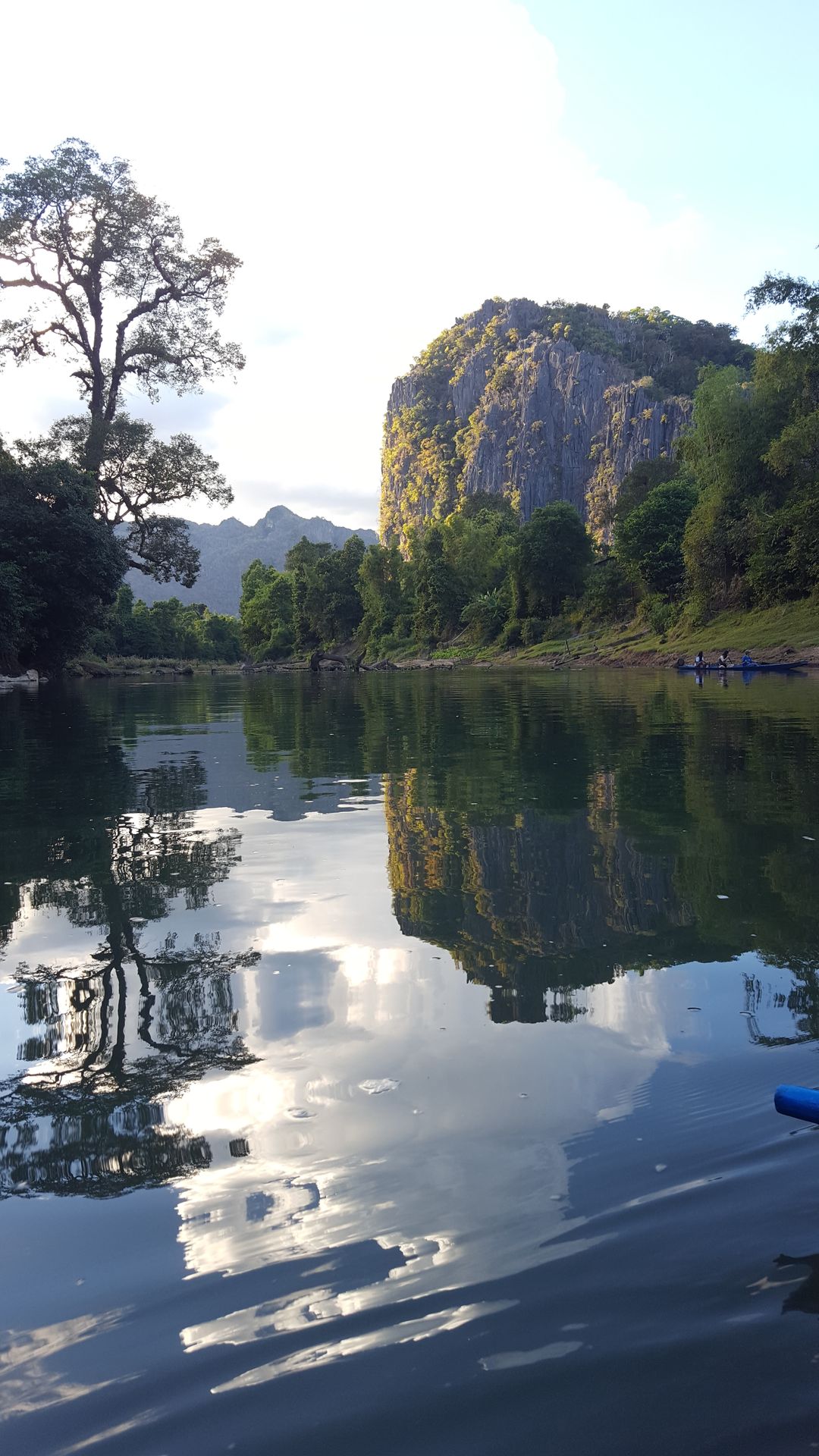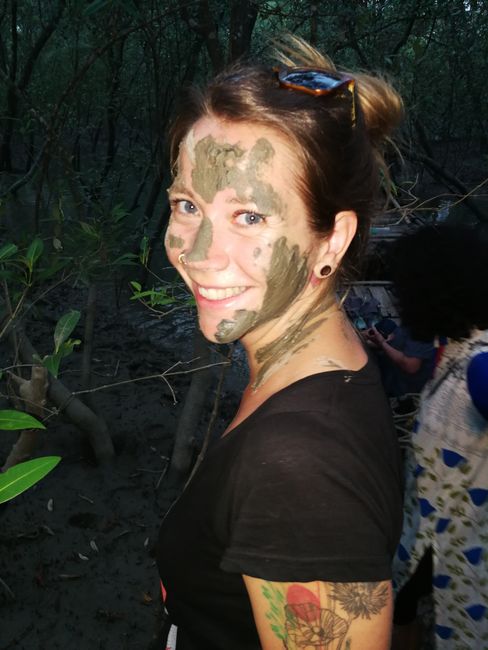The best comes last, and when it's the most beautiful, you should leave
Lofalitsidwa: 27.03.2018
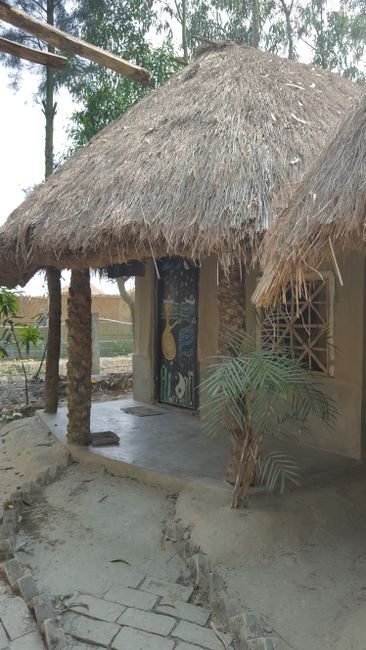
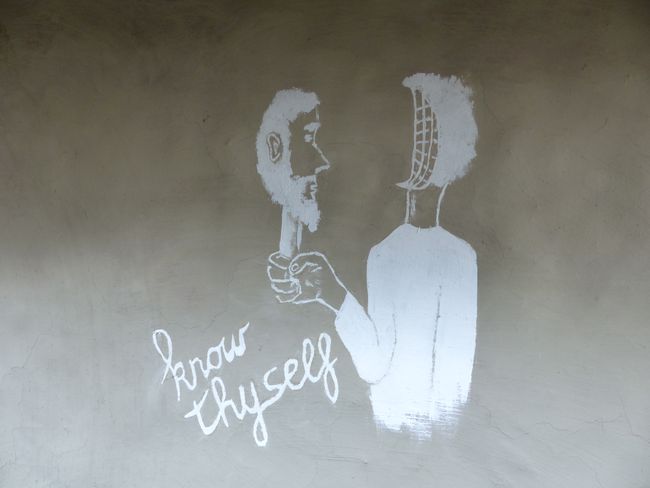
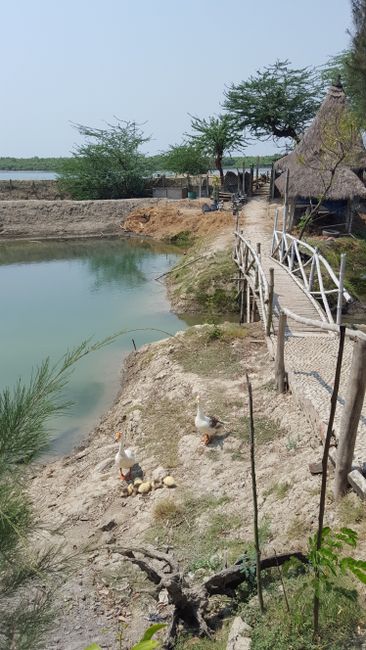
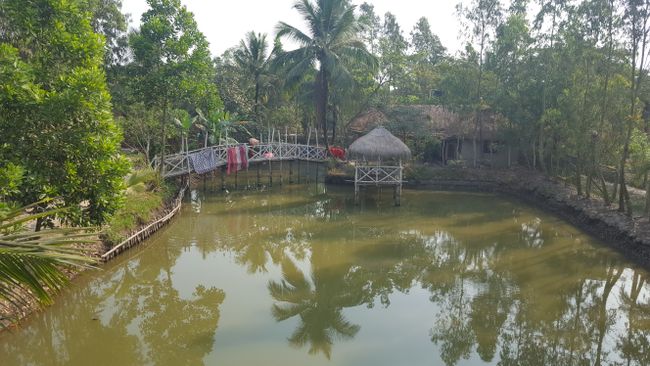
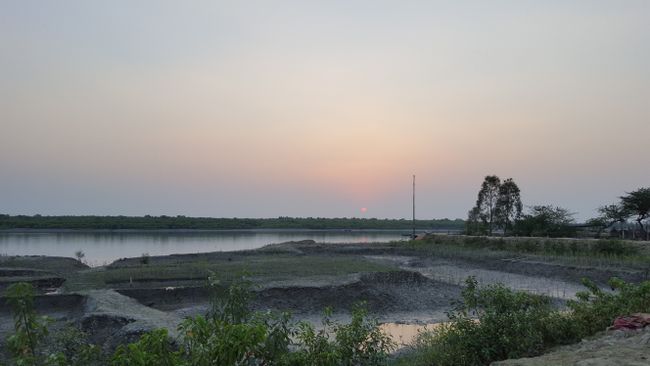
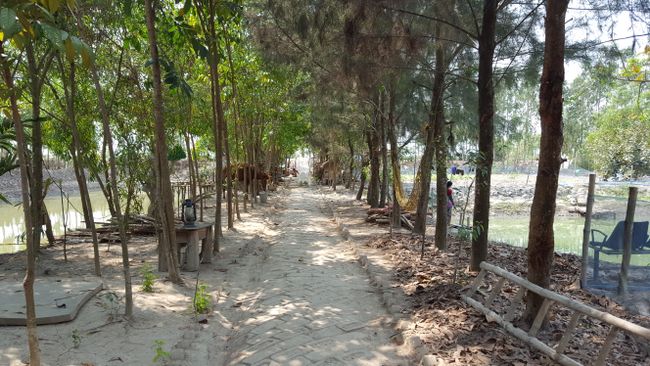
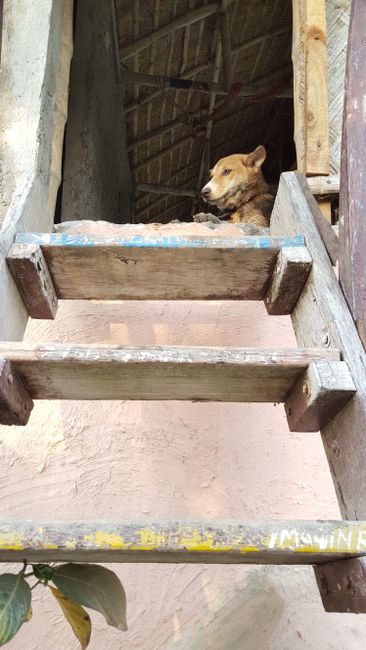
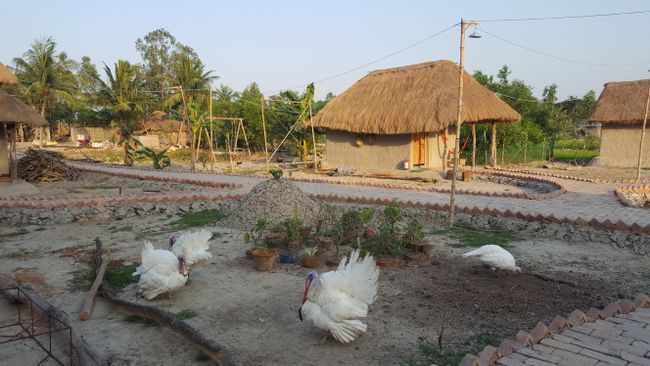
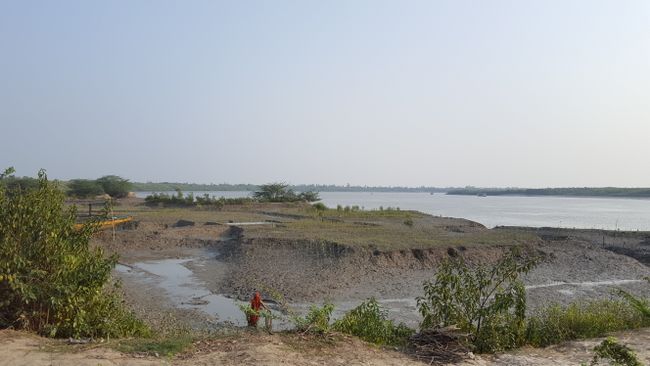
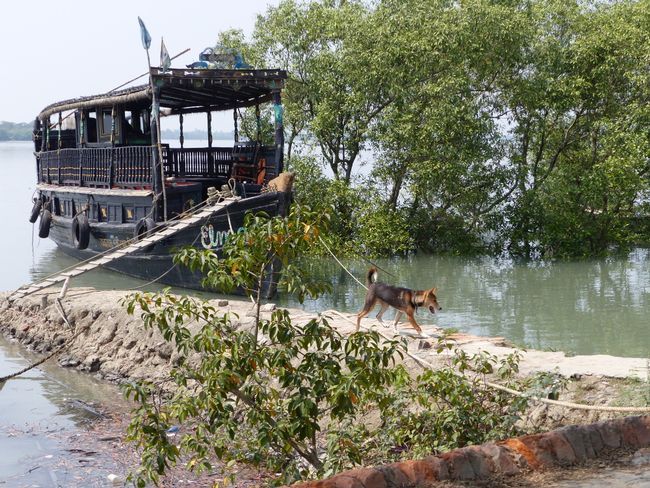
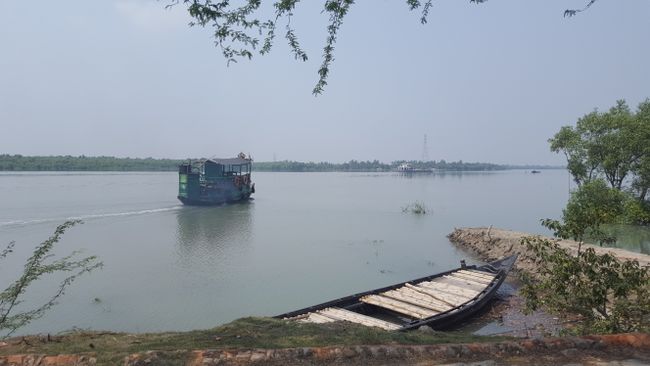
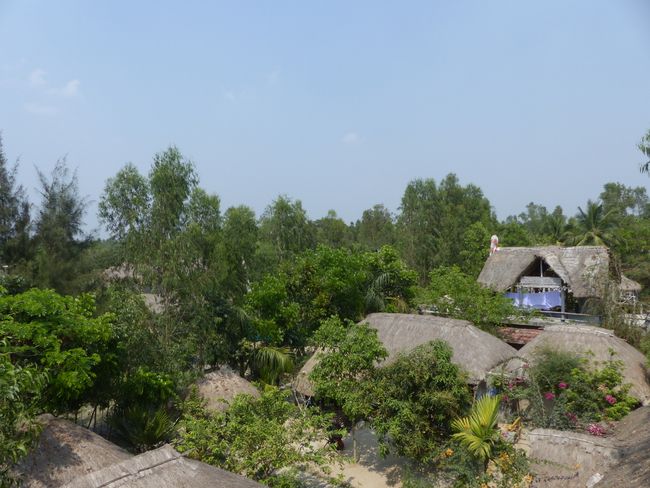
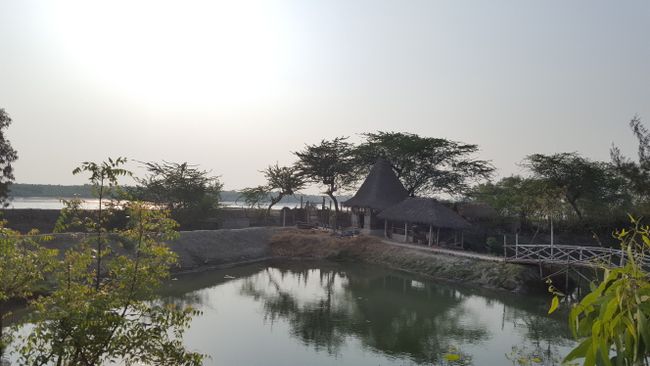
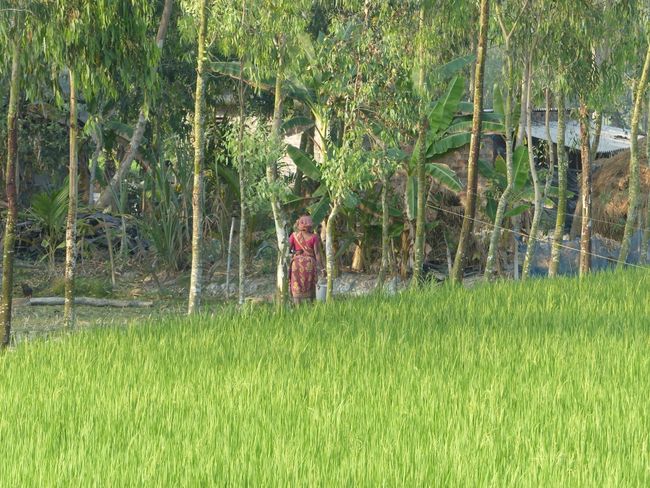
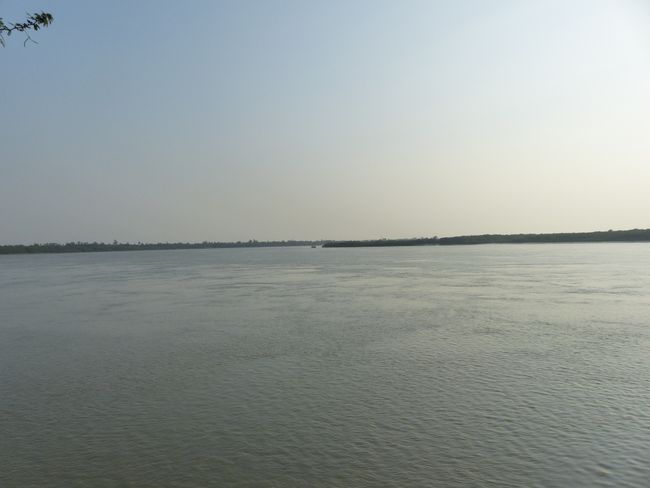
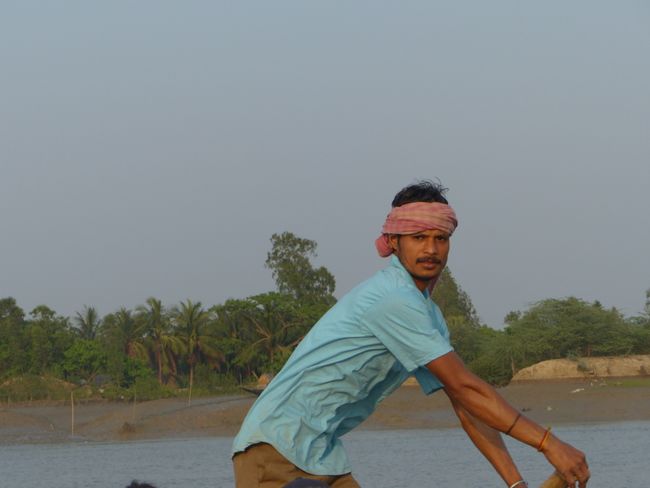
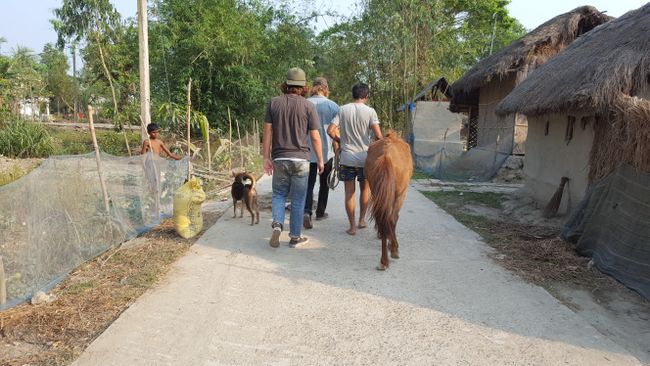
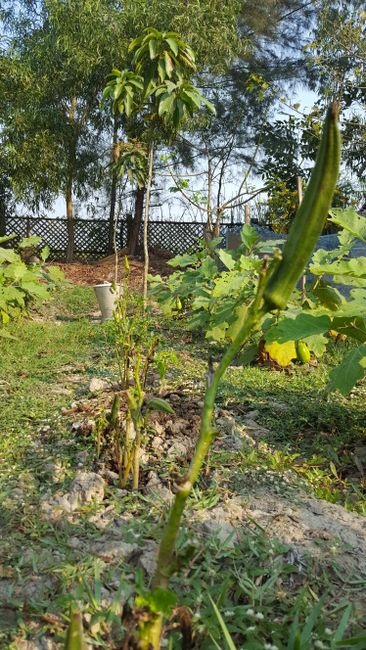
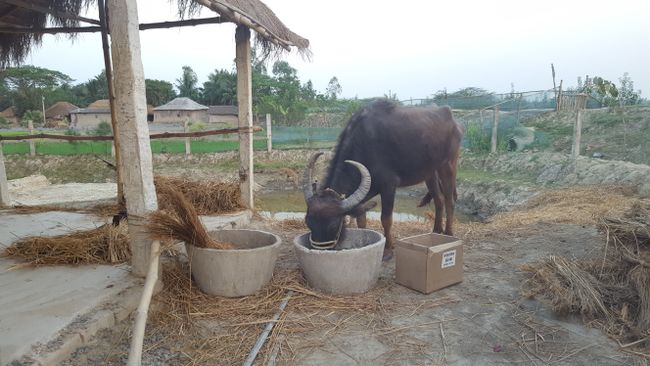
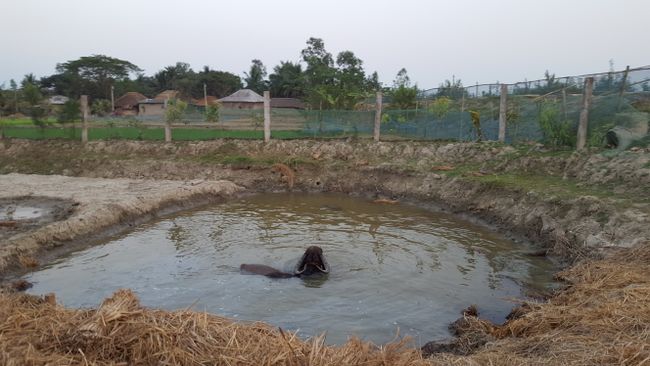
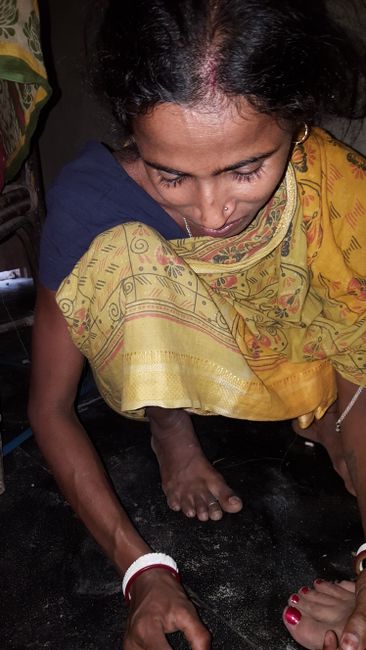
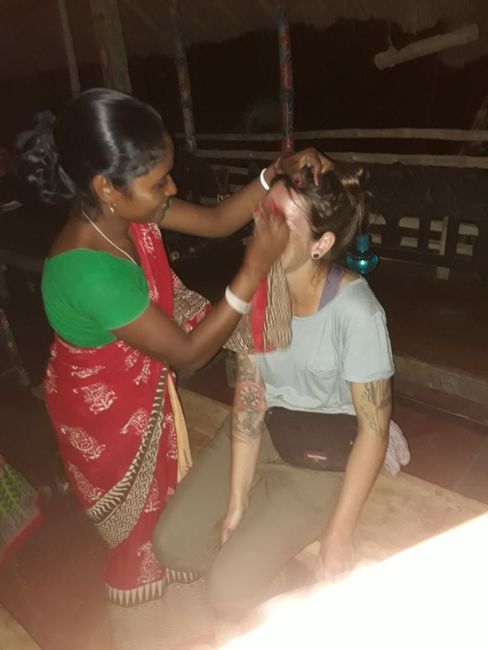
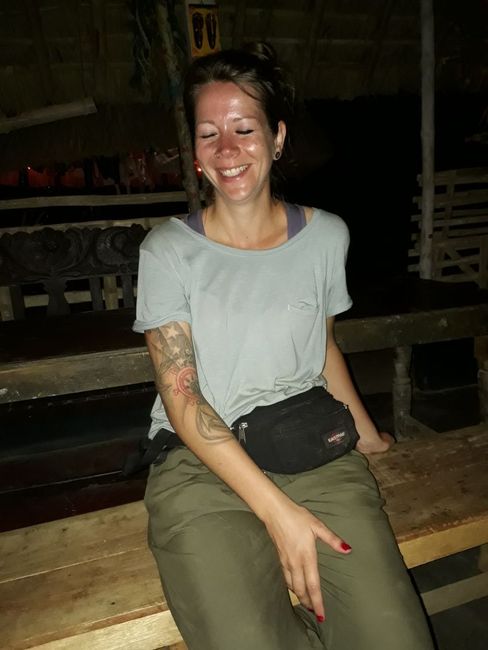
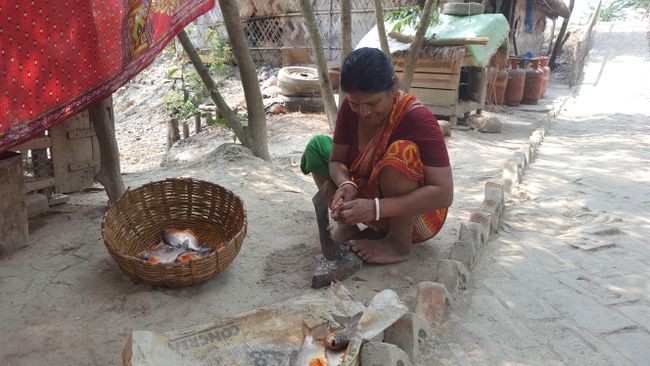
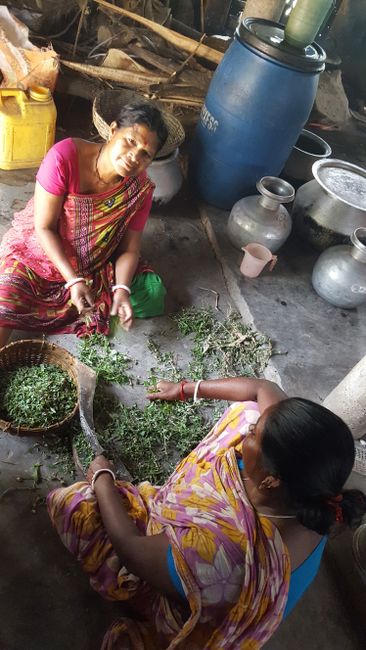
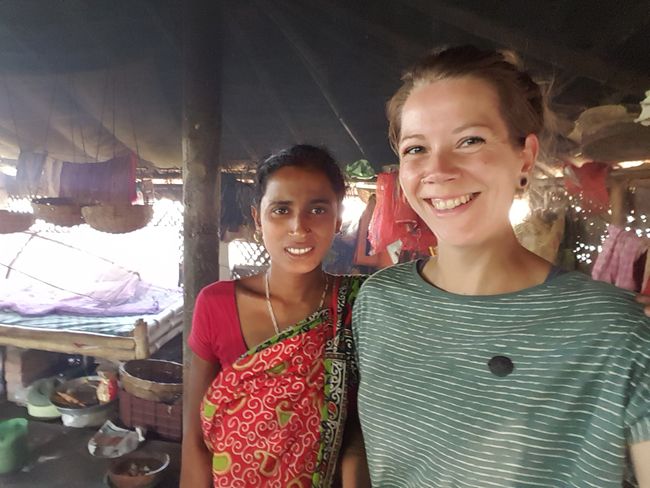
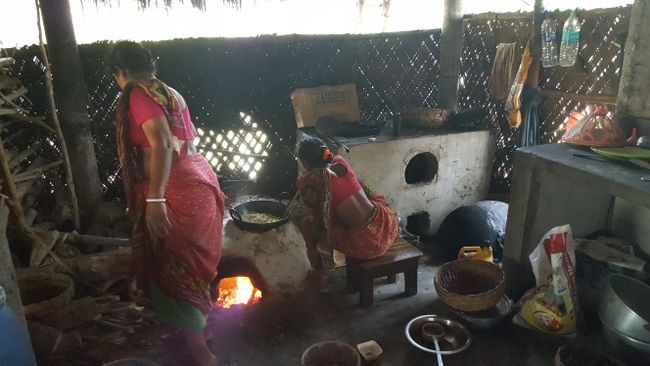
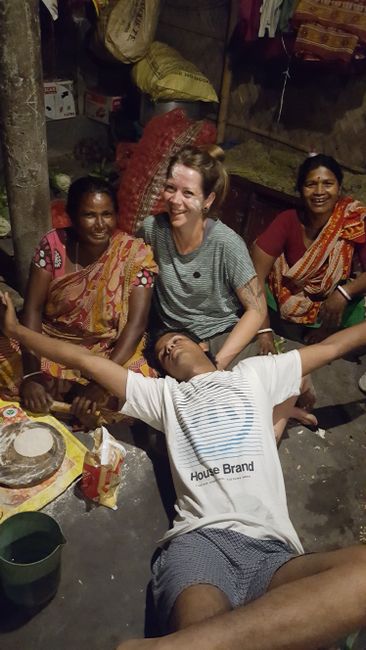
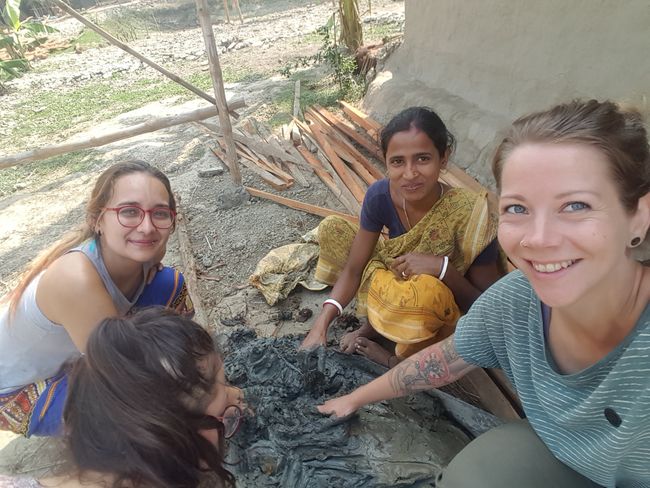
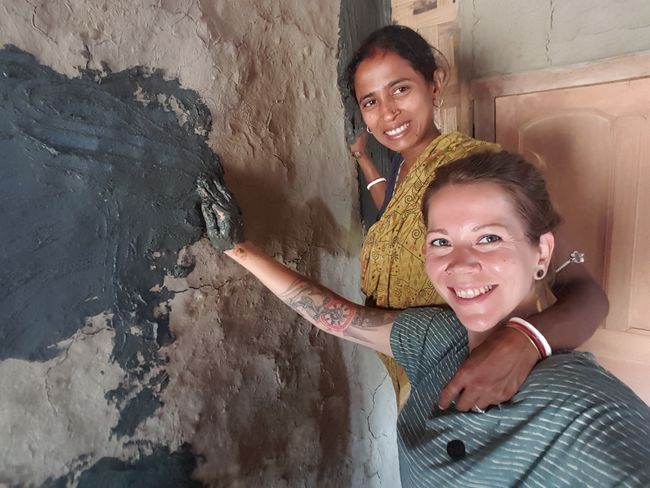
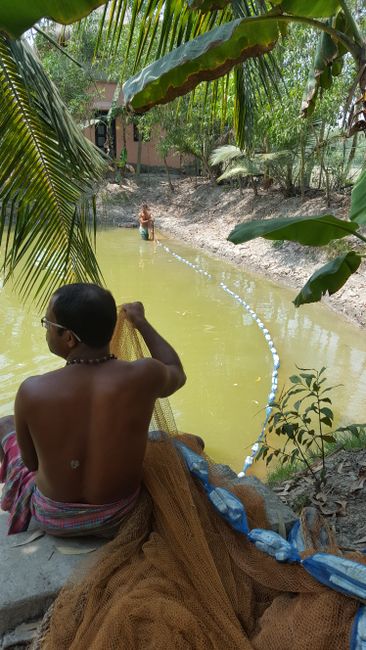
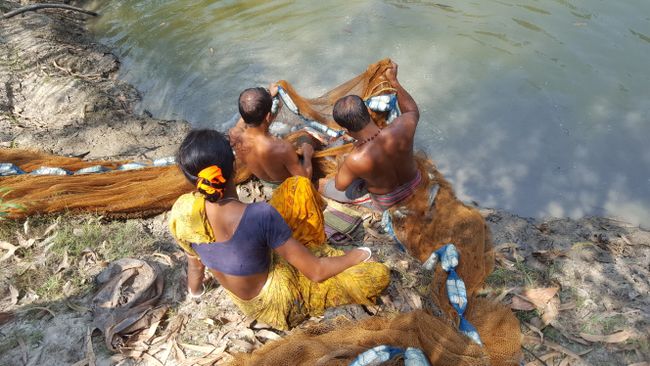
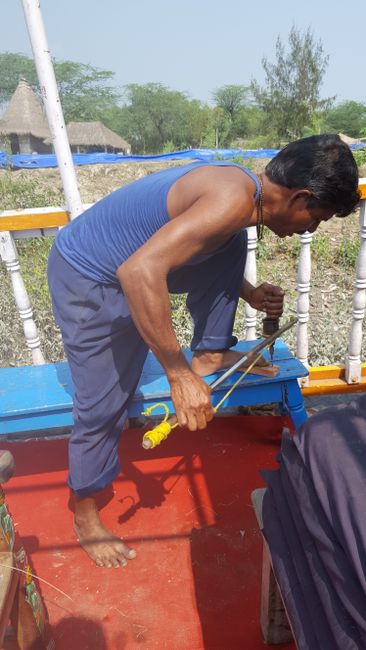
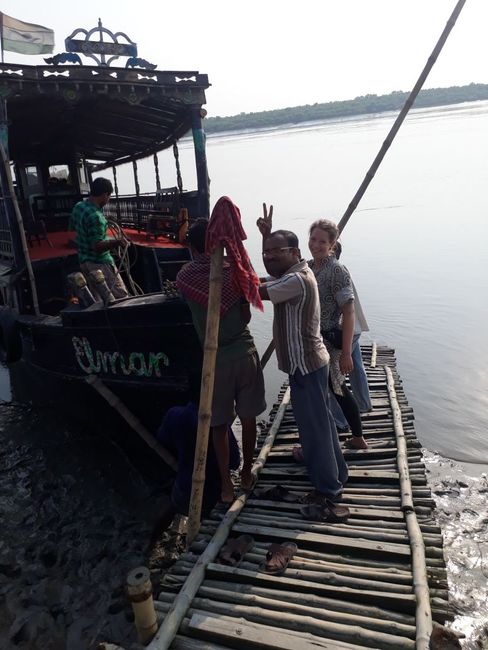
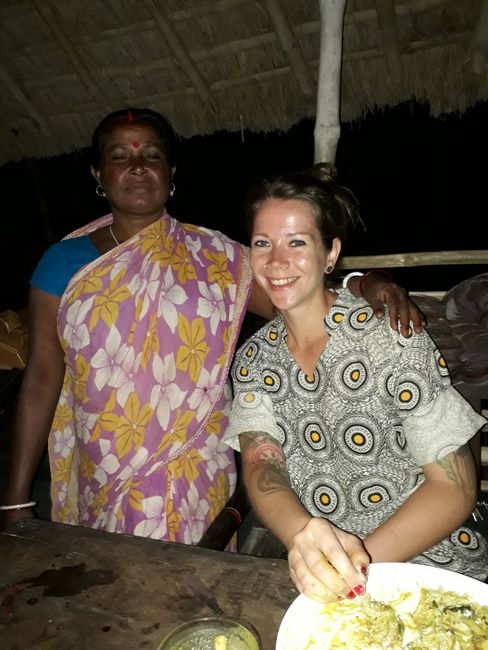
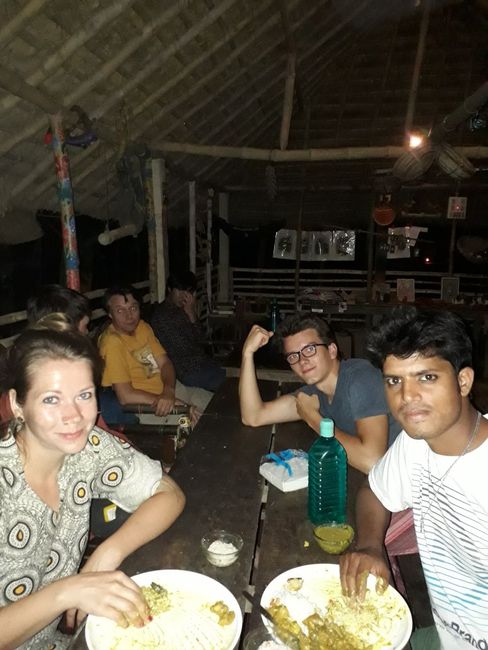
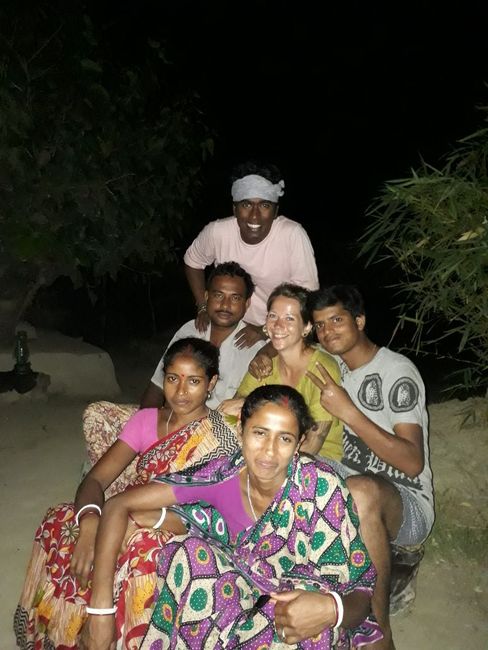
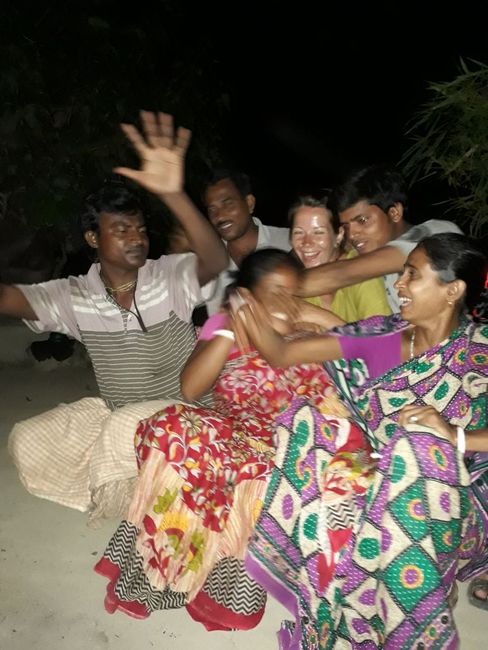
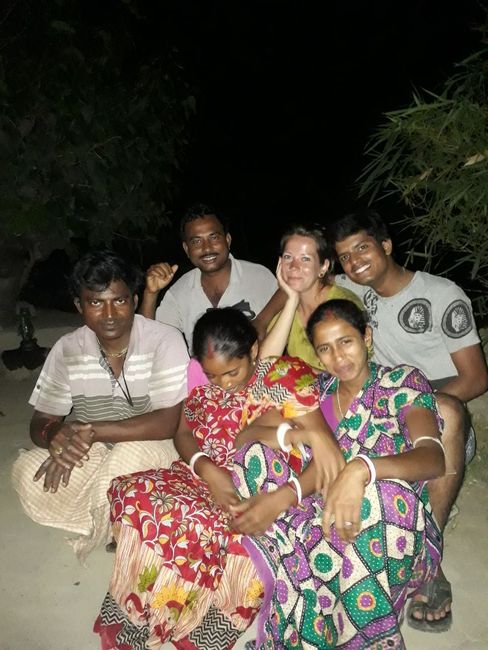
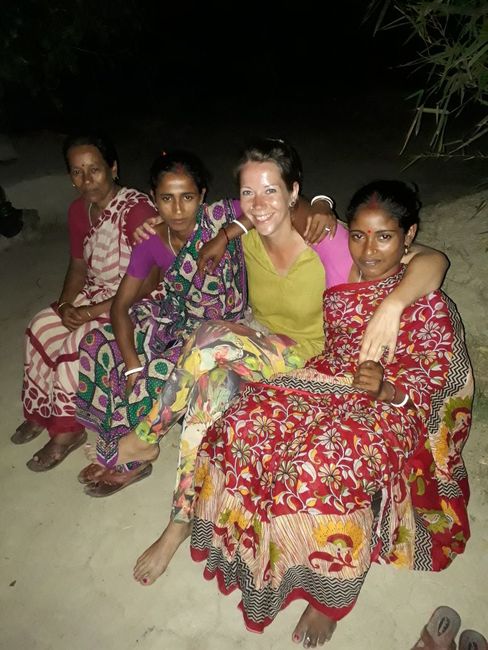
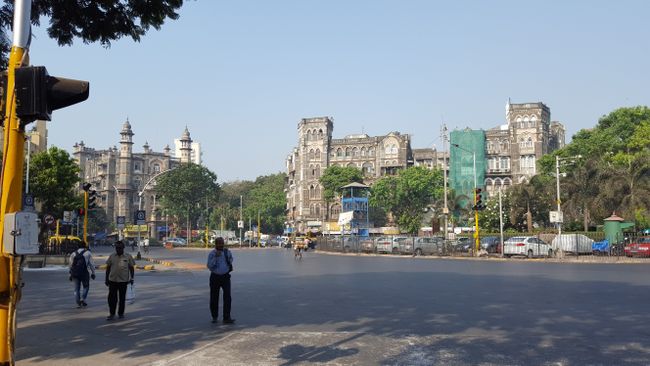
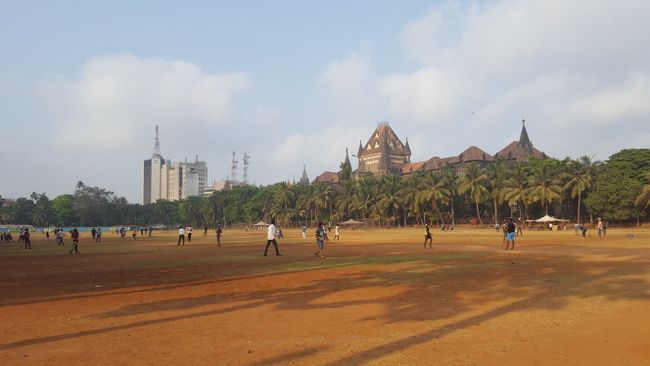
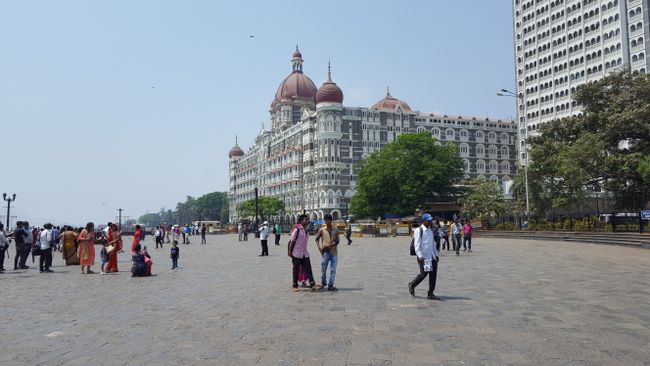
Lembetsani ku Newsletter
... but how can you know that it's the most beautiful moment? And that it can't get any better? For me, it didn't feel like the right time to leave the Sundarbans again. And I realize that I lack the words to describe what I have experienced and learned in the last two weeks. Nevertheless, I will try to tell you a bit about it today and let you participate in the last part of the journey.
It feels like an eternity ago that I said goodbye to Eric in Jaisalmer and got on the train to Kolkata. To be honest, at that time I had mixed feelings about my plan to go to the Sundarbans alone for two weeks. It was not clear at all how I would get there from Kolkata, what I would actually do there, and how I should communicate. For someone like me, who likes to know and plan everything in advance, it was quite a challenge. Suddenly, the idea of just flying to Goa and relaxing on the beach for the last few days seemed very tempting. But I also knew that I would soon regret it if I didn't take this opportunity. Interestingly, I stumbled across a few Pippi Longstocking quotes on the internet, one of which was as follows: 'We have never tried that before, so I'm sure we can do it.' And what can I say. It went well, more than well. The last two weeks were wonderful and for me, actually the most beautiful part of the journey. Sunday morning, on March 11th, I went to the Backpackers office and there was a group that day and also space for me in the car, so I arrived at the Eco Village on Satjelia Island quite relaxed. Already on the way, which I remembered from the last time, I felt better right away. And when I arrived in the village, everything seemed familiar to me. I even got my own hut, which I didn't expect, and could settle in there for my stay.





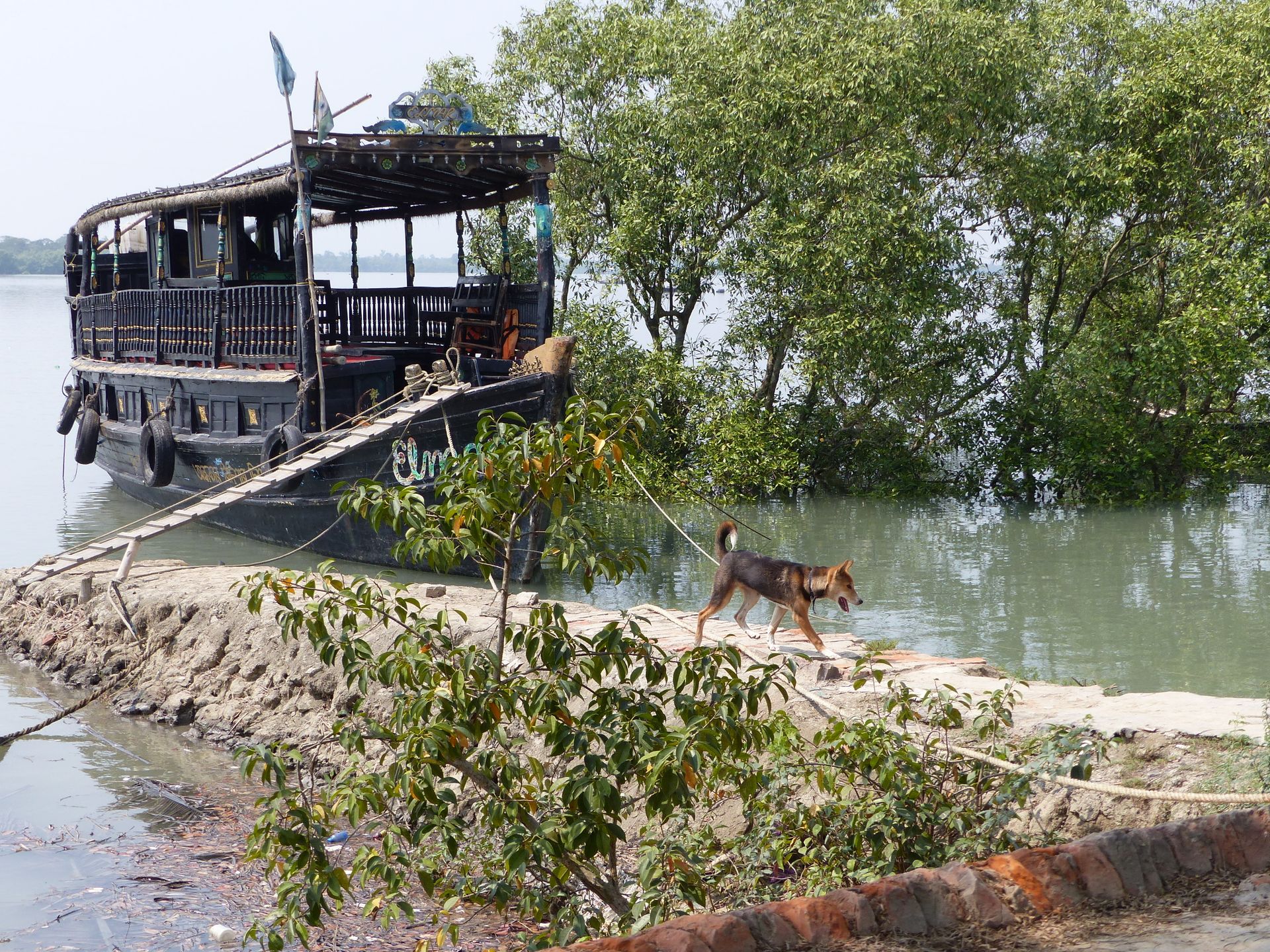

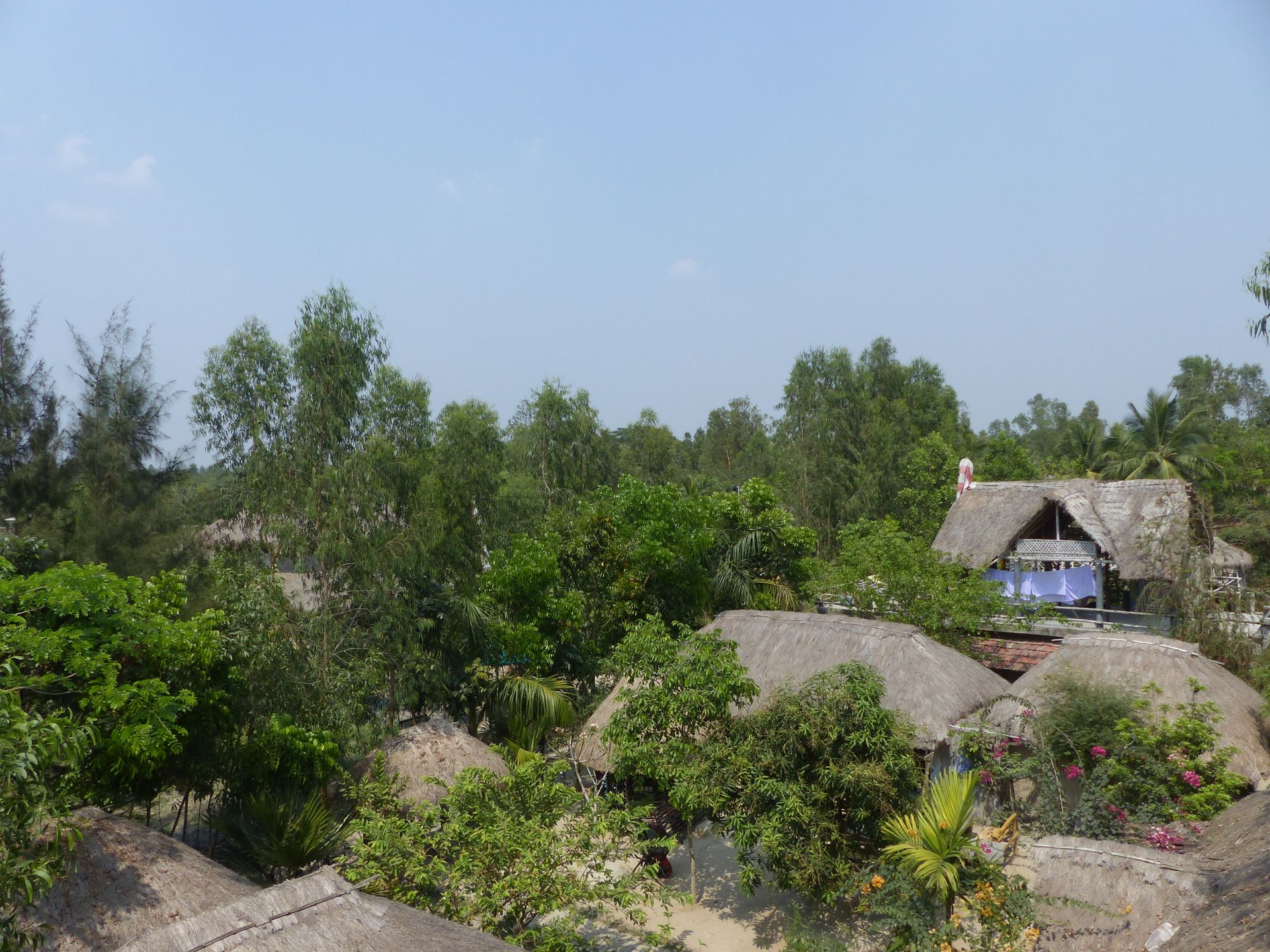

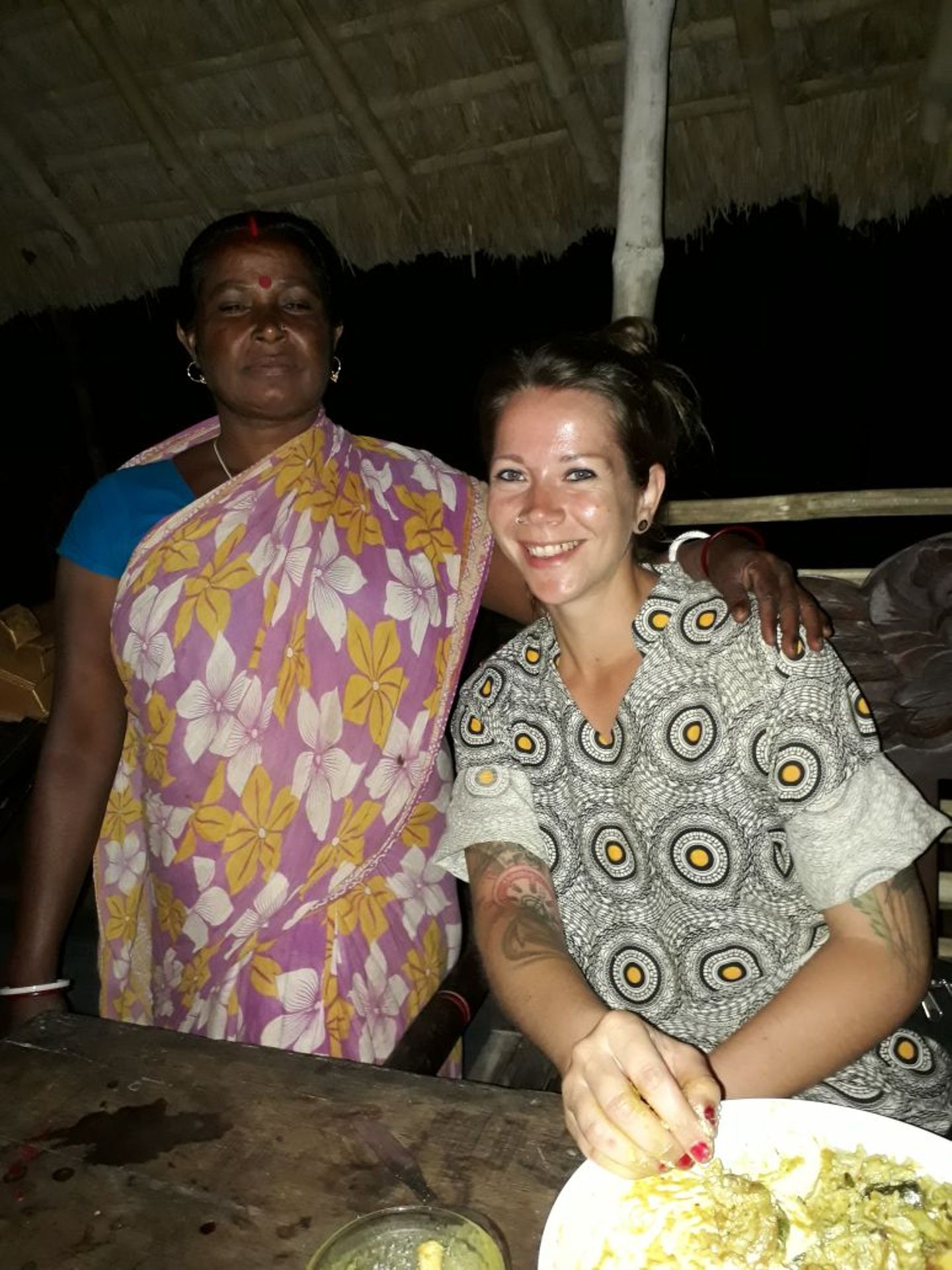
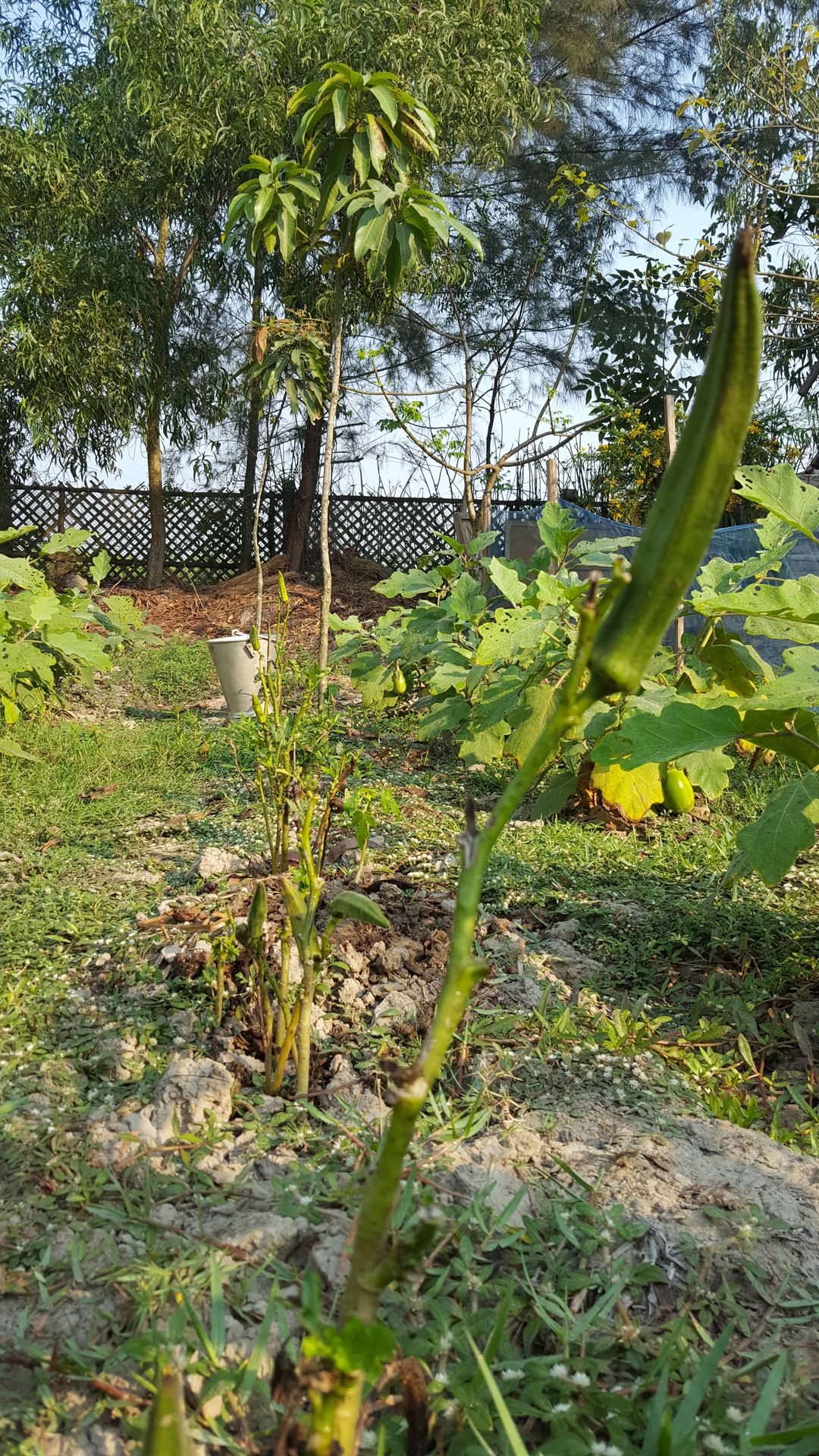
After breakfast (rice with dhal or vegetables), I often went to the kitchen to peel garlic or onions - a lot and only with my fingers. One of the big, sharp knives was never given to me.

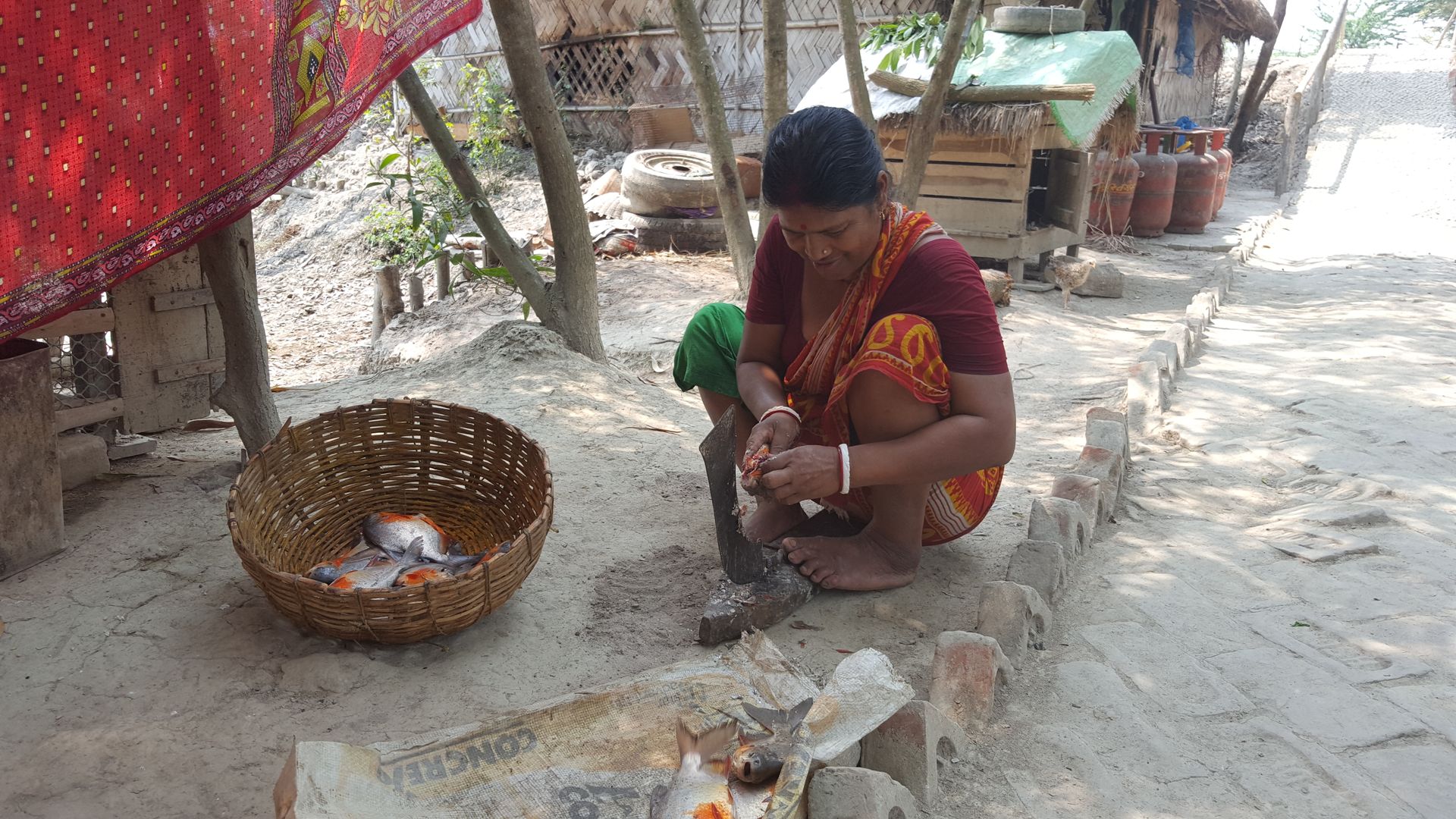

Once I helped with making rotis - how did the flour end up on my face?
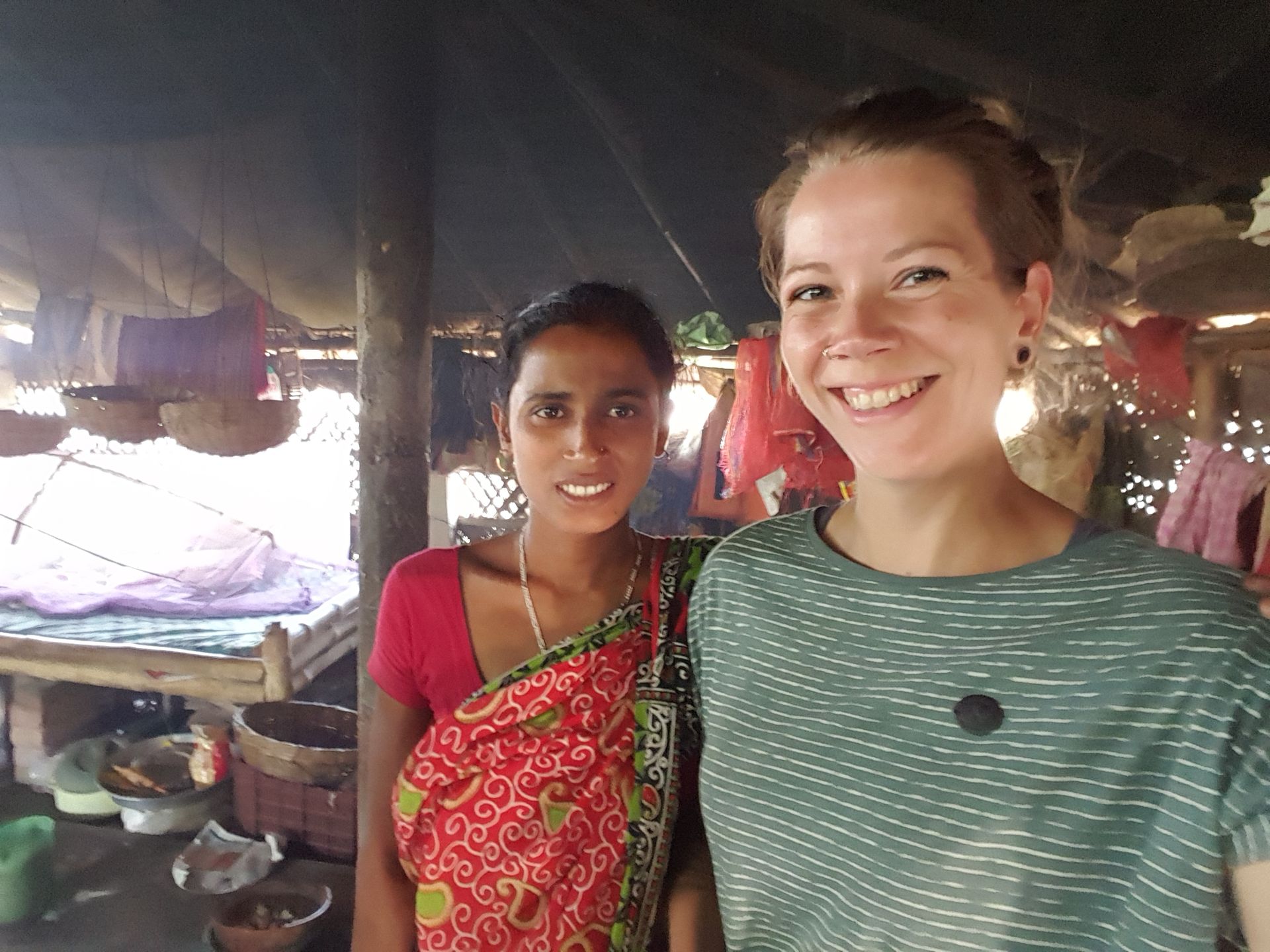
Bandhu (girlfriend) Tumpa
Then, around 12:30 pm, there was always time to shower or swim. Then there was lunch, and then almost every day a new group of tourists arrived, who had booked a tour with the Backpackers like Eric and me in February. At some point, it also became my task to help serve the groups. When they went on the village walk and birdwatching tour with their respective guides, I had free time until 4:30 pm. Then there were usually smaller tasks to do until the sun was low enough to water the plants. In the first week, for example, I helped carry bricks that were needed for a new storage room. And I used a hammer to remove the bark from many, many tree trunks. The blisters on my fingers didn't stop me from continuing until everything was done. It was just too much fun. A few times, I also helped feed the animals and clean the stable.



Unfortunately, I couldn't split myself and gardening and taking care of the animals always happened at the same time. And since it was very exhausting for Saunda to carry bucketloads of water from A to B, I usually chose to help her.
In the second week, I then 'plastered' the walls of the huts with the two youngest women from the village, Tumpa and Madhubi. That was a lot of fun. First, you mix cow dung with mud and a little water, and then you spread it all over the walls by hand. I hardly took any photos while working, but here I couldn't resist:


I think when I first sat down with Tumpa and Madhubi and put my hand in the cow dung-mud mixture, they couldn't believe it. In any case, they laughed heartily, but then always asked me if I would help them when it was time to plaster another hut.
Twice, some of the men from the village asked me for help, but there wasn't much I could do except hand them tools and hold things here and there (and smoke way too many beedis). But I found it very exciting to see how simple tools are used here. I found this hand drill that Jyotish is using, for example, fascinating.
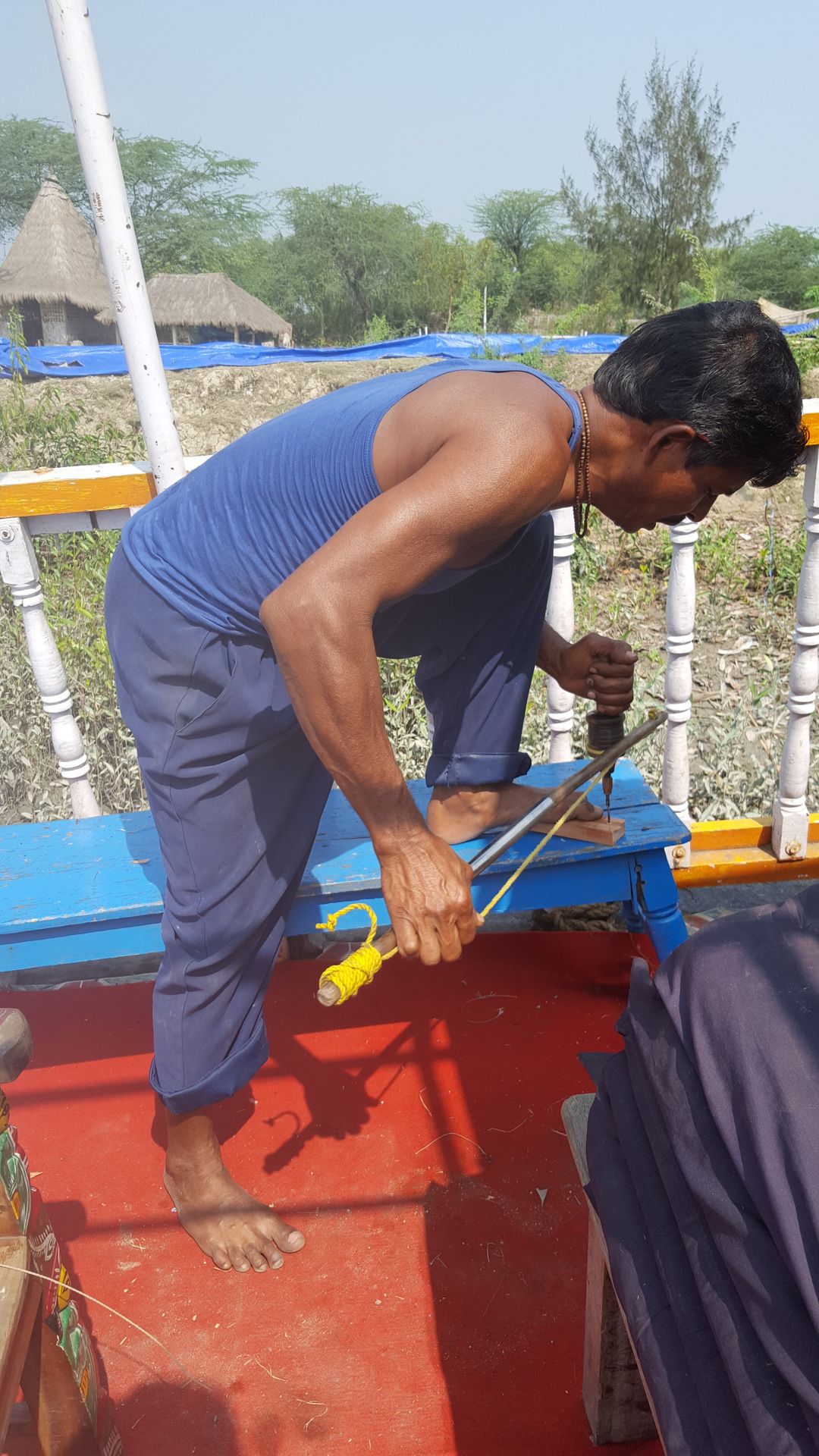
When I was called at noon to help push one of the large boats out of the mud because it had gotten stuck there at low tide, I had to laugh a little. But they were serious.

we brought Elmar back into the water with the strength of us all
Once, I also helped with fishing


Every day was different and working in the heat was sometimes really exhausting. But I had a lot of fun and it was great to do something with my hands, see the result afterwards, and feel some of my muscles when it was time to finish work. I just did everything that needed to be done and what the people in the village were doing. I think that helped me quickly establish contact with everyone. We also always ate together and pretty soon I felt stupid being the only one with a spoon. So, on the second day at noon, I started eating with my right hand, as is customary in India. I had to endure being curiously watched during the first meals and contributing to the entertainment of others, but soon it became normal and I didn't get a spoon anymore.

I felt at home and accepted after a very short time. Almost everyone called me 'Bandhu' - friend - and they told me that I was now part of their family. And all this without a common language because almost nobody in the village speaks more than a few words of English, and unfortunately I don't speak Bengali either. Nevertheless, we somehow understood each other, and only occasionally in the evenings did I ask one of the guides, Arif or Manjit, to translate something for me.
I had a lot of fun with the two girls Tumpa and Madhubi in particular. I think it was about the third or fourth day after I arrived when they waved me over and indicated that they wanted to try my cigarette. First, we sat outside one of the huts that were being plastered and then they pulled me inside because they didn't feel safe outside. And then the four of us sat in the hut, giggling and smoking, always with a glance out the window in case someone came. I felt like I was 12 and hiding from my parents. The difference is that Tumpa and Mahdubi are 22 and 25 years old and married. But it is not appropriate for women to smoke here, especially not in public. Fortunately, not all people in the Eco Village see it that way. After the first shared cigarette, Mahdubi ran off and came back with a bottle of nail polish, and Tumpa painted my nails.
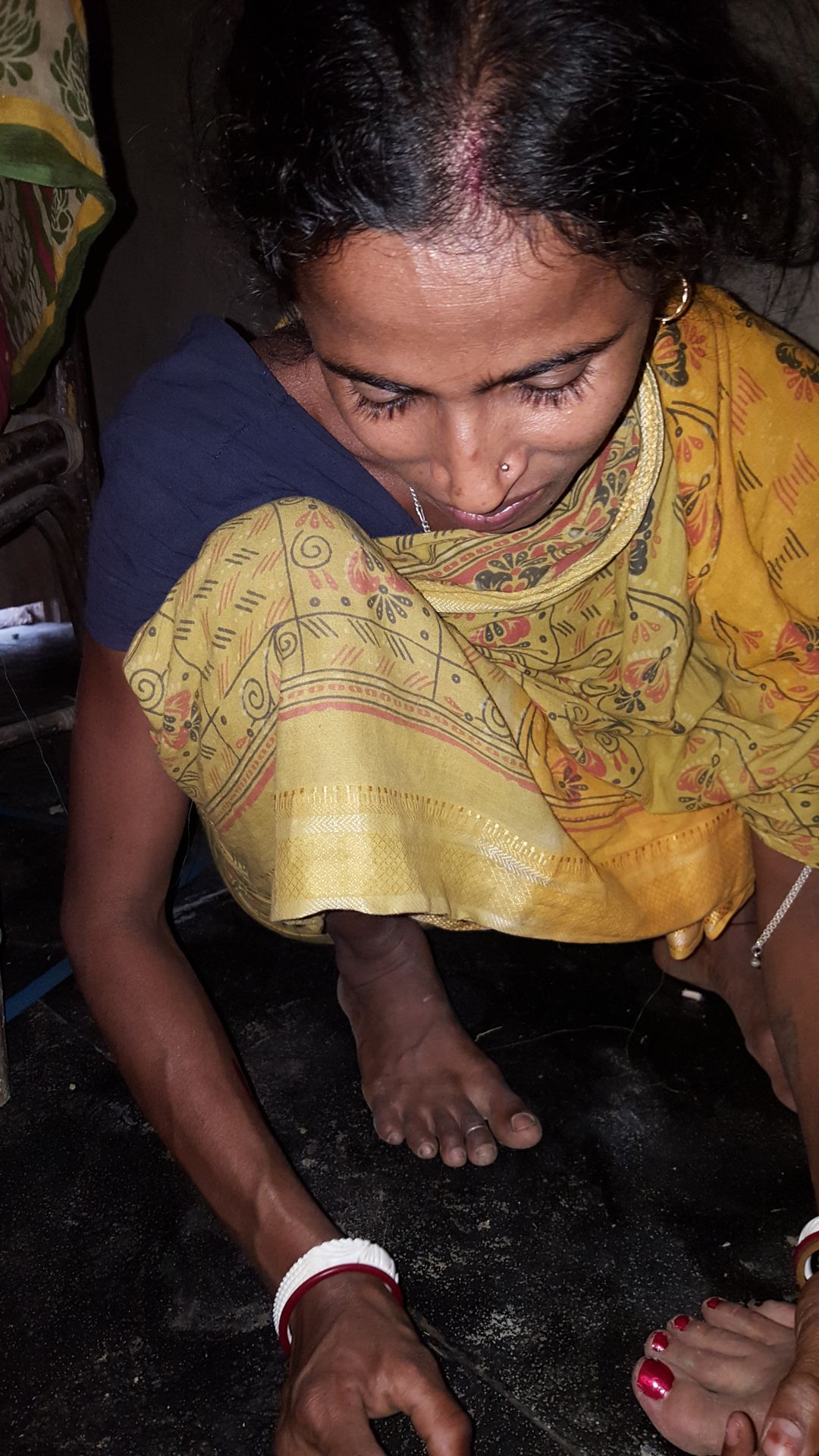
In the evening, they then made up my eyes with surma (kohl), which feels really strange because the color is applied to the eyes and feels like rubbing mint leaves on them.

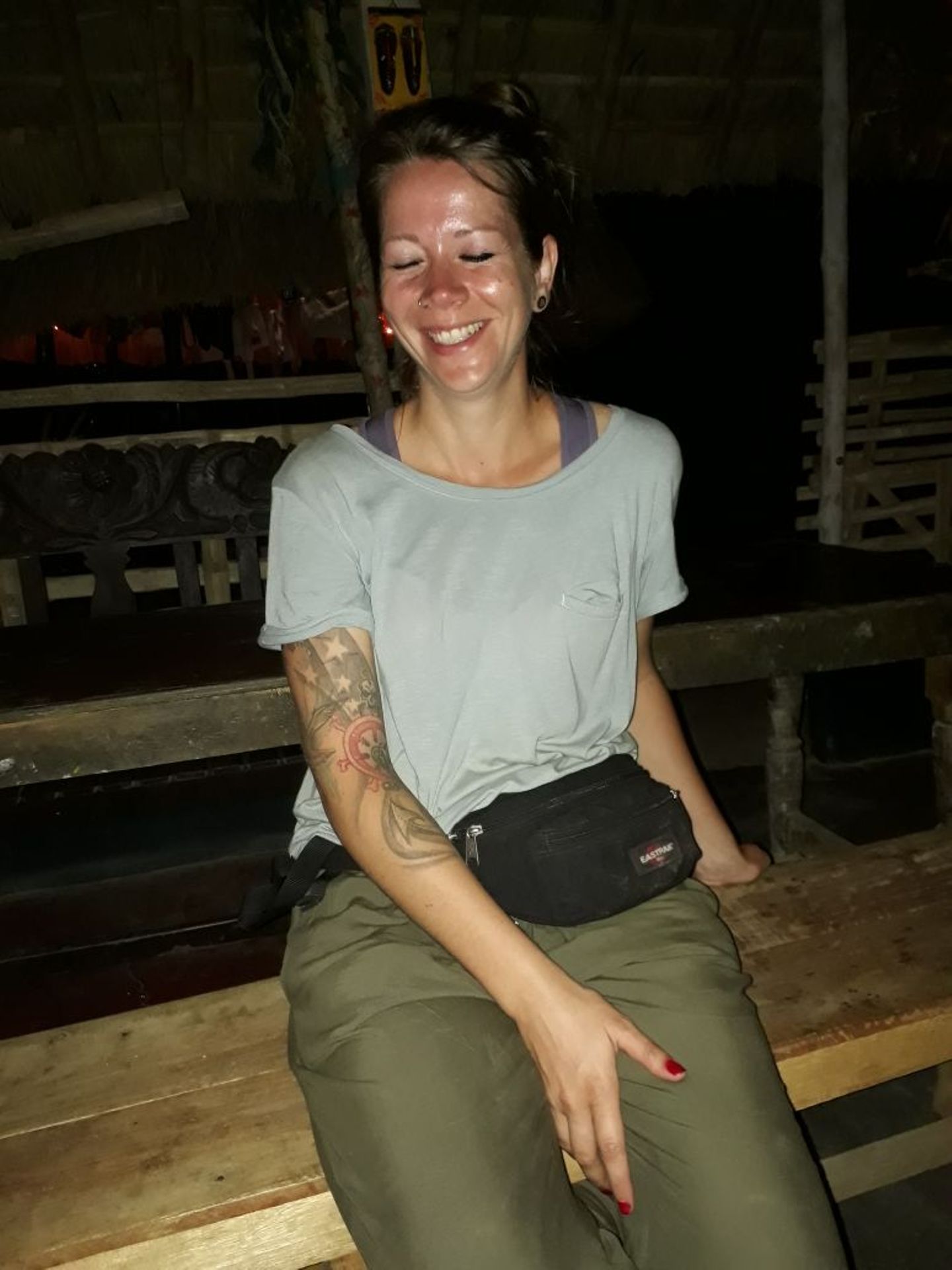
I went on the village walk and the subsequent boat tour with the groups twice in the afternoon. It was varied to talk to the tourists in between because there were usually some very nice and interesting people among them. Unfortunately, I haven't received the photos from a tour of the 'mudfight' and 'mudslide' yet, so you'll just have to believe me that it was pretty funny and that I was covered in mud from head to toe.
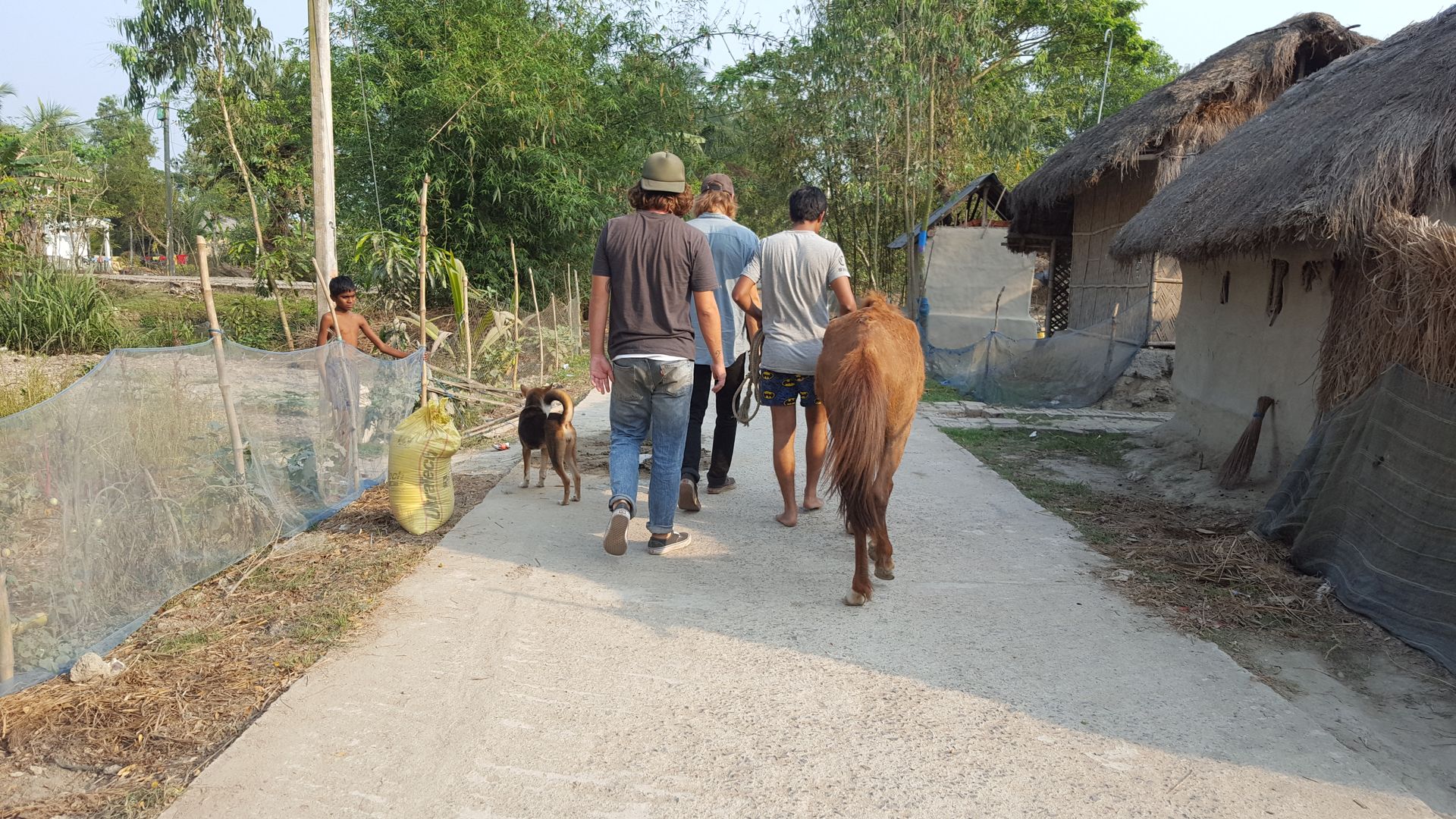

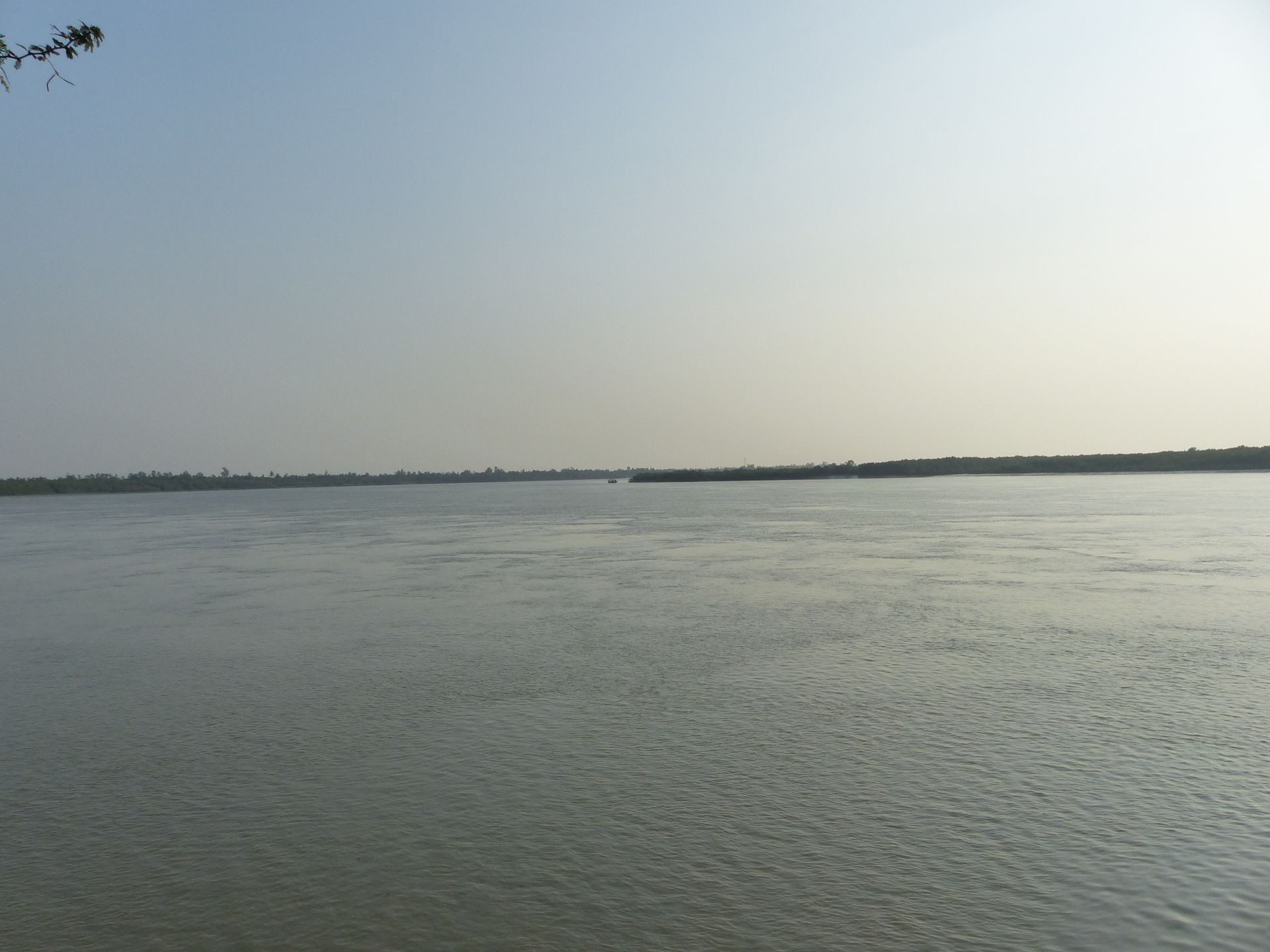
And every evening, I joined the Night Safari. One hour in the small boat under the starry sky, the bioluminescent plankton in the water, and thousands of fireflies in the mangroves... and the boatman who sings the song of the bird that wants to fly and doesn't want to be locked in a cage in absolute silence.
I had unforgettable moments on the whole trip, but the last two weeks in the Sundarbans were particularly special and intense. I am so grateful for this time and at the same time so sad that I couldn't stay longer. I promised everyone that I would come back, and I am determined to do so. On the last afternoon, Madubhi and I took a nap hand in hand in one of the huts, and she said she was very sad when I leave. We come from such different worlds, and yet I realized that many things are so similar because we are all human, no matter how and where we live and grow up. Certain things are understood immediately, even without a common language, and laughing together always works, like when we tried to take a nice farewell photo here.
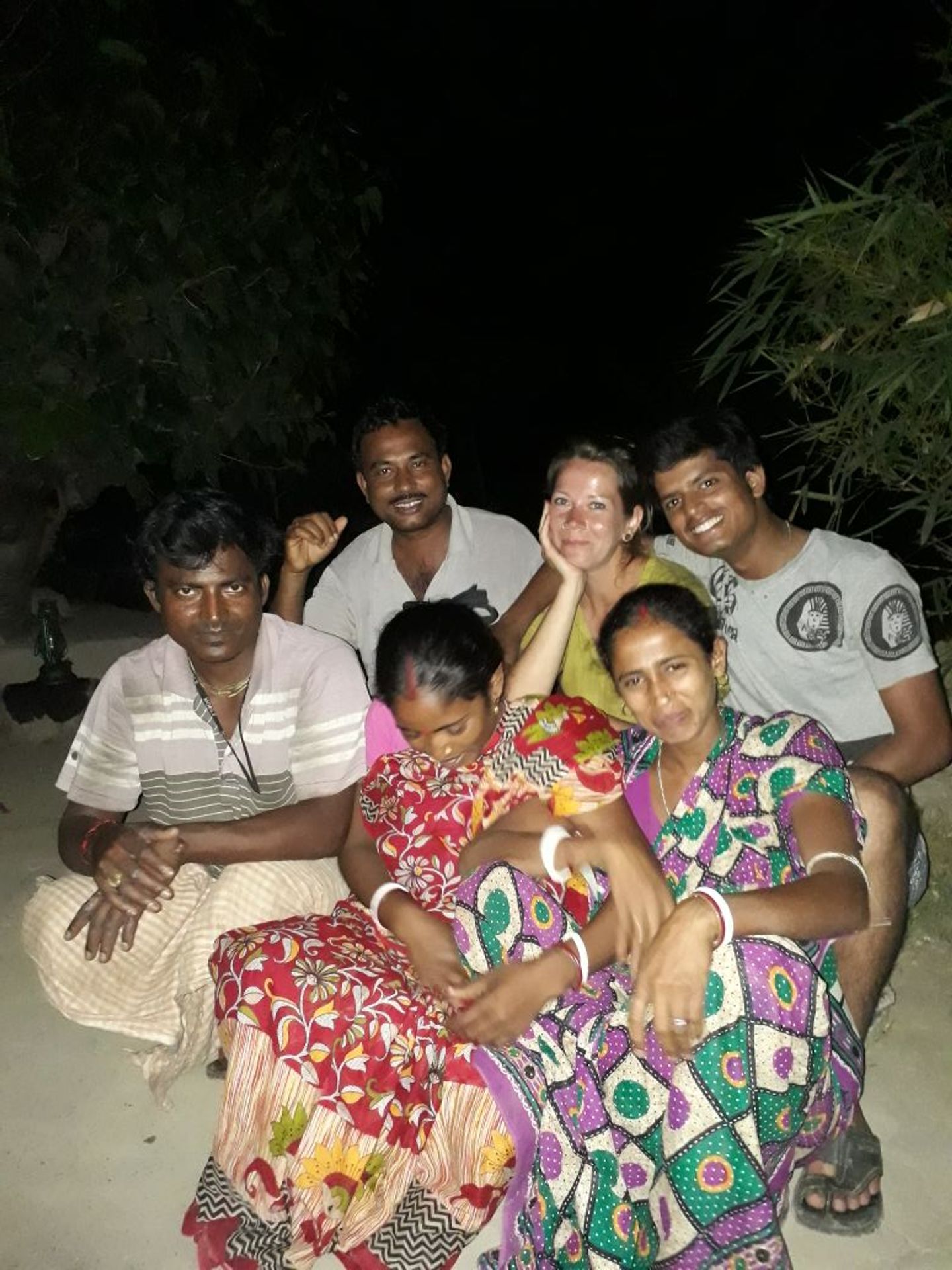



I already miss all these people so much and hope that I will see them all again in the not too distant future. They all have a place in my thoughts, and already there are occasional memories of a situation or conversation that makes me smile or pensive. I had a great accommodation for my work in the village, the best food on the whole trip, but above all a lot of love and unforgettable moments.
Not only the time in the Sundarbans is over, but also the three months in India. Eric and I have been in Mumbai since Monday afternoon and have tried to make the last two days as good as possible. We even met up with Parag, who was with us on the Sundarbans tour in February and lives here. That was a nice distraction from the pain of parting, which is affecting me quite a bit right now. We have experienced so much, met so many nice and interesting people. Many of them lead lives that are so different from ours in Germany. Many things are also not so different. Especially here in Mumbai, it sometimes feels like we are not in India anymore, but in a European metropolis.

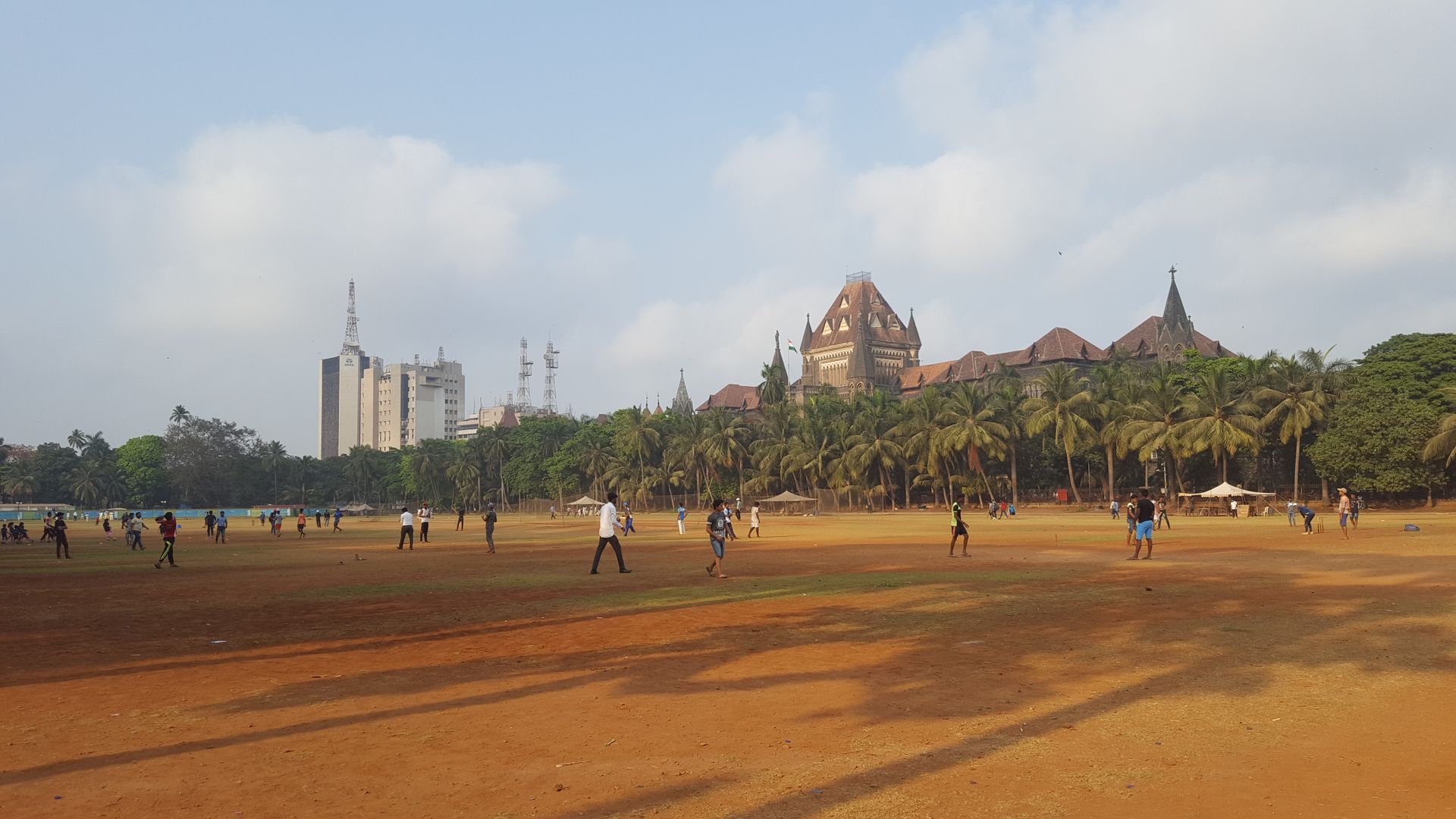

Both of us feel like we have been away for much longer than three months. For most people in Germany, normal life and everyday life have continued, and three months probably feel like nothing to you. I think the culture shock when I return will be worse than when I arrived here in Mumbai at the end of December.
There are many things here that I will miss. Some are just little things, like the delicious chai that I get on every street corner. Above all, it is the character and attitude towards life of many people that I have met here and have come to know very personally. I hope that I will remember all of this for a long time and that many things will not be forgotten in the daily routine, which will probably catch up with me faster than I want.
So, my dear ones. That's it from me now. I always enjoyed your nice feedback on my little reports, and I will miss writing here a bit. But we will see each other soon in person, and maybe there will be some more stories to tell that I didn't share here...
Lembetsani ku Newsletter
Yankhani
